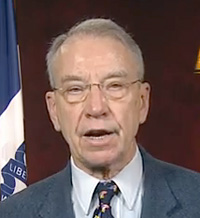 Q: What is Tax Freedom Day?
Q: What is Tax Freedom Day?
A: Since 1990, the Tax Foundation has calculated how many days a taxpayer must work from January 1 each year to pay taxes that year, including federal, state and local levies. Tax Freedom Day is the symbolic day that a taxpayer’s income no longer goes to paying taxes. This year, Tax Freedom Day arrives nationally on April 17, after 108 days of work. In Iowa, Tax Freedom Day came on April 9. According to the Tax Foundation, if the federal government raises taxes to close the budget deficit, Tax Freedom Day would come on May 14, instead of April 17.
Q: Would raising taxes reduce the deficit?
A: President Obama is pushing a tax increase that he calls the Buffett Rule, after billionaire investor Warren Buffett. According to the Joint Committee on Taxation, the nonpartisan scorekeeper for all tax legislation in Congress, the Buffett Rule, as introduced by Senator Sheldon Whitehouse of Rhode Island, would generate $47 billion of revenue over ten years, or less than $5 billion a year. That’s a minuscule fraction of the federal deficit, which is currently more than $1 trillion for the fourth year in a row. And, $47 billion is less than 0.3 percent of America’s $15.6 trillion national debt. In fact, the Buffett Rule would cover one day of deficit spending by the government in fiscal year 2012.
Raising taxes won’t help reduce the deficit unless spending is under control. This spring, the head of the Government Services Administration was forced to resign after the Inspector General found that $823,000 was squandered last year on an over-the-top Las Vegas conference for agency employees with outlandish spending on penthouse suites, entertainment including a clown and a mentalist, and gifts of electronics including iPods, along with other indefensible spending. Last fall, a Navy audit of a contract awarded for energy efficiency projects under the 2009 stimulus program found that $90 million was wasted, yet the Navy official responsible for the contract award has done nothing to stop the projects. Since 2008, federal spending has increased by 21 percent and would continue to increase under the President’s budget, where it would be more than 23 percent of the total economy through 2014 and never drop below 22 percent in future years. Given that government spending as a percent of the economy has averaged about 21 percent since 1970, the President’s budget proposes a massive increase in the size of government.
What’s more, there’s evidence that tax increases fuel more spending rather than reduce deficits. Professor Richard Vedder of Ohio University has studied tax increases and government spending for decades. According to his analysis, over the entire post-World War II era and through 2009, every dollar in new taxes has resulted in $1.17 in government spending. In fact, in the budget proposed in February by President Obama, only 16 percent of the $2 trillion in tax increases would go to deficit reduction.
In addition, whatever the details of proposed tax increase, there’s evidence that raising taxes in a struggling economy makes things worse. Federal Reserve Chairman Ben Bernanke said this in response to a question I asked him during Senate Budget Committee hearing earlier this year.
Q: Aren’t taxes on working families going up anyway in January 2013?
A: Personal income taxes for individuals and families will go up dramatically if Congress and the President don’t act this year to extend the tax relief enacted in 2001 and 2003. I authored these tax relief measures as Chairman and Ranking Member of the Senate Finance Committee. The legislation reduced marginal tax rates and even created the 10-percent bracket for low-income taxpayers. It also reduced the marriage penalty, increased the child tax credit, increased the adoption credit, and increased tax relief for both education and dependent care costs. Most small business income is taxed at the top marginal rate for individual taxpayers. So, small businesses, where 70 percent of new jobs are created, will see tax increases if this tax relief is not extended, and job creation will be made more difficult. Without action by Congress and support from the President, low-income taxpayers will see their rate jump from 10 to 15 percent. Because of the procedure under which the legislation was passed, the tax relief expired after ten years. Congress and the President extended it with a bipartisan agreement in 2010. These tax policies should be permanent law, but at the very least, they should be extended.
The problem isn’t that people are taxed too little, but that Washington spends too much. Consider that from 1946 to 2008, budget deficits averaged 1.7 percent of the gross domestic product and exceeded five percent only three times. From 2009 to 2011, budget deficits averaged 9.4 percent of the gross domestic product. And, the federal debt held by the public grew from 40 percent of the gross domestic product in 2008 to an estimated 69 percent of the gross domestic product in 2011.
Q: When is the deadline to file and pay my income taxes?
A: The annual federal income tax deadline is usually April 15. This year, because April 15 falls on a Sunday, and April 16 is a holiday in the District of Columbia, the federal tax deadline is Tuesday, April 17, 2012.
Q: Where can I get help with filing?
A: The Internal Revenue Service provides additional guidance for taxpayers, including information about filing electronically for free, at www.irs.gov.






